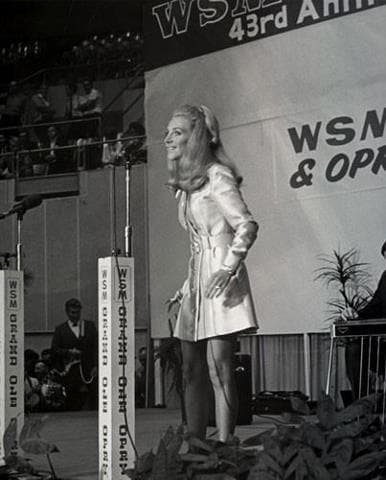
The yearning for love and the fear of heartbreak, distilled into a single, defiant plea.
There are certain songs that, the moment you hear them, transport you back to a specific time and place. They become the soundtrack to a memory, a feeling, a moment in your life that you’ve long since packed away. Jeannie Seely‘s 1966 hit, “Don’t Touch Me,” is one of those songs. It’s a timeless classic that speaks to the deepest parts of the human heart, a raw and honest plea that resonated with listeners then and continues to do so today.
The song was a monumental success for Jeannie Seely, reaching No. 2 on the Billboard Hot Country Songs chart and even crossing over to the pop charts, where it peaked at No. 85 on the Billboard Hot 100. This crossover appeal was a testament to the song’s universal message and Seely’s powerful, soulful delivery. The song’s impact was undeniable, earning her a Grammy Award for Best Female Country Vocal Performance in 1967. This wasn’t just another country hit; it was a defining moment for a young artist and a groundbreaking statement in a genre that was, at the time, still very much rooted in tradition. Seely‘s spirited, nonconformist style, which later included her famously wearing a miniskirt on the Grand Ole Opry stage, was already evident in her vocal performance—a bold, confident woman singing about desire and self-preservation on her own terms.
The story behind the song is as compelling as the song itself. Penned by the legendary songwriter Hank Cochran, who would later marry Seely, the lyrics were born from a deeply personal place. The song’s raw emotion and vulnerability are a window into the complex dance of a new relationship, one where the physical connection is so potent that it threatens to overwhelm the emotional foundation. The narrator is caught in a moment of intense passion, but she’s also wise enough to know that a temporary physical thrill without a deeper, lasting commitment will only lead to more profound pain. The song is a plea for emotional honesty, a request to hold back on the physical intimacy until the heart is truly ready. It’s a powerful and brave stance, especially for a woman in the mid-1960s, to demand that her feelings be respected and to assert control over her own body and heart. The song’s lyrics, “Your hand is like a torch each time you touch me / That look in your eyes pulls me apart,” perfectly capture the tension between desire and caution.
For those of us who came of age during that era, the song was a revelation. It wasn’t the typical sappy love song or a tear-in-my-beer lament. It was something different—something real. The song’s success also helped launch the career of Jeannie Seely, who would go on to become a member of the Grand Ole Opry in 1967 and a trailblazer for women in country music. She was a rebel in the best sense of the word, and her music reflected that. “Don’t Touch Me” is a testament to her enduring legacy and her role in reshaping the image of women in country music. It’s a song that evokes a time when music was more than just a fleeting melody; it was a story, a feeling, and a piece of our collective history. It’s a song that reminds us that sometimes, the most passionate expression of love is not to touch at all.